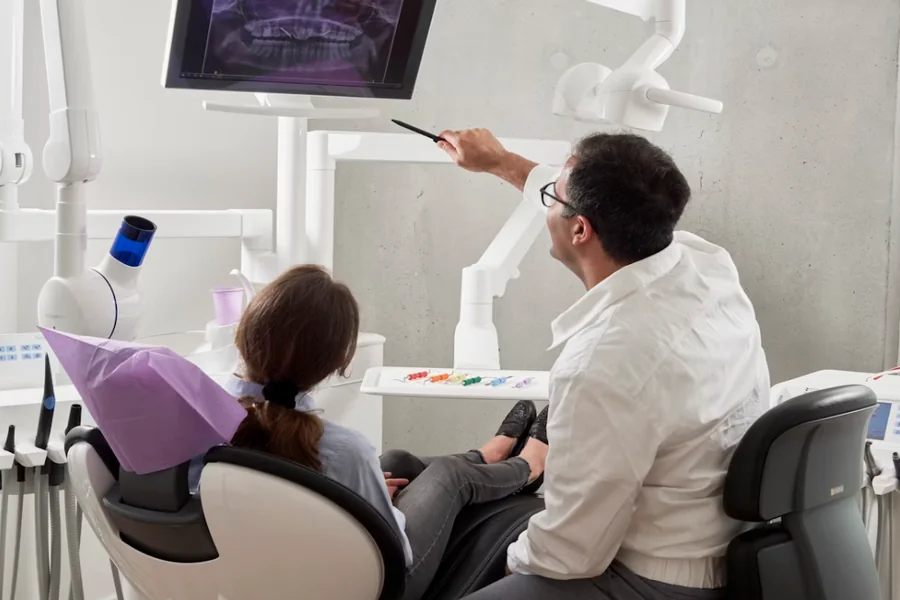How Virtual Assistants Are Revolutionizing Dental Practices in the Digital Age

In today’s rapidly changing healthcare environment, dental practices are embracing technology in ways that go beyond advanced equipment and digital imaging. One of the most significant shifts has been the integration of virtual support into daily operations. A Dental Virtual Assistant is not only streamlining administrative work but also transforming how practices engage with patients, manage their schedules, and handle complex workflows. This evolution is helping dental professionals reclaim their time while enhancing the quality of care delivered to patients.
Improving Administrative Efficiency
Running a dental practice requires careful coordination of appointments, billing, insurance claims, and patient records. Traditionally, these tasks were handled by in-house staff who often found themselves overwhelmed by the sheer volume of responsibilities. Virtual assistants specializing in dentistry are now stepping in to manage these administrative duties remotely. They are skilled in handling scheduling, follow-ups, reminders, and even insurance verifications with accuracy and speed.
This shift allows in-office teams to focus on direct patient interaction instead of being tied down by repetitive tasks. The result is a more organized practice where patients experience shorter wait times, clearer communication, and smoother overall service. By reducing administrative errors, dental practices also foster greater trust with patients, which in turn strengthens long-term loyalty.
Enhancing Patient Communication
Clear communication between dental practices and their patients has always been essential, but the demands of modern healthcare have made it more challenging to maintain. Virtual assistants play a pivotal role in bridging this gap. They handle appointment confirmations, respond to inquiries, and provide reminders for follow-up visits or preventive care. This level of attention ensures that patients remain engaged and well-informed about their treatment plans.
Beyond logistics, a virtual assistant can help practices nurture patient relationships by maintaining regular contact and ensuring that patients feel valued. For example, sending timely reminders about routine checkups or seasonal oral health tips creates an experience of personalized care. This proactive approach increases patient compliance and helps prevent more serious dental problems in the future.
Supporting Practice Growth
In an industry where reputation and patient referrals drive success, the efficiency brought by virtual assistants directly contributes to practice growth. Dental professionals can devote more of their time to clinical excellence, which strengthens patient satisfaction and generates positive word-of-mouth referrals. Meanwhile, virtual assistants provide backend support that ensures all aspects of the practice run smoothly.
Growth is not limited to patient numbers alone. By reducing overhead costs associated with hiring full-time, in-office staff, dental practices can reinvest in better equipment, continuing education, or expanding services. This creates a sustainable growth model that benefits both providers and patients alike.
Reducing Burnout for Dental Teams
Workplace burnout is a growing concern in healthcare, and dentistry is no exception. Dentists and their staff often juggle long hours filled with clinical work, administrative tasks, and patient care demands. Virtual assistants significantly alleviate this burden by taking on responsibilities that otherwise consume valuable time and energy.
With a more balanced workload, dental professionals can focus on what they do best—delivering excellent oral healthcare. This balance not only reduces stress but also enhances the overall atmosphere within the practice. Patients benefit from a more attentive and energized dental team, creating a win-win situation for everyone involved.
Adapting to a Digital-First World
The digital transformation of healthcare has been accelerated by global events, patient expectations, and advances in technology. Dental practices that integrate virtual assistants demonstrate adaptability and forward-thinking, qualities that patients increasingly value. From managing electronic health records to ensuring compliance with data privacy standards, virtual assistants are equipped to handle the digital complexities of modern dentistry.
As telehealth becomes more common across healthcare sectors, dental practices are also seeing the benefits of remote support. Even if dentistry remains primarily an in-person field, virtual assistance ensures that practices remain competitive in a world where convenience and efficiency are highly prized.
The Future of Dentistry with Virtual Assistants
Looking ahead, the role of virtual assistants in dentistry is expected to expand further. Integration with artificial intelligence and advanced practice management systems will enable them to handle more complex tasks such as predictive scheduling, patient engagement analytics, and tailored marketing strategies. Dental professionals who adopt these tools early will gain a competitive advantage, offering patients an experience that blends clinical excellence with seamless support.
The future of dentistry is not only about new medical technologies but also about more innovative ways of running a practice. Virtual assistants embody this shift, proving that efficiency and patient satisfaction can coexist when supported by the right digital tools.
Conclusion
The digital age is redefining how dental practices operate, and virtual assistants are at the forefront of this transformation. By managing administrative tasks, improving patient communication, supporting practice growth, and reducing staff burnout, they have become indispensable allies for modern dental professionals. As technology continues to evolve, the role of the Dental Virtual Assistant will only grow stronger, ensuring that practices can thrive in a fast-paced, patient-focused healthcare landscape.


![The Best Way to Buy Modvigil Online in 2025 [No Rx & Best Price]](https://netizensreport.com/wp-content/uploads/2025/09/The-Best-Way-to-Buy-Modvigil-Online-in-2025-No-Rx-Best-Price-768x512.webp)
